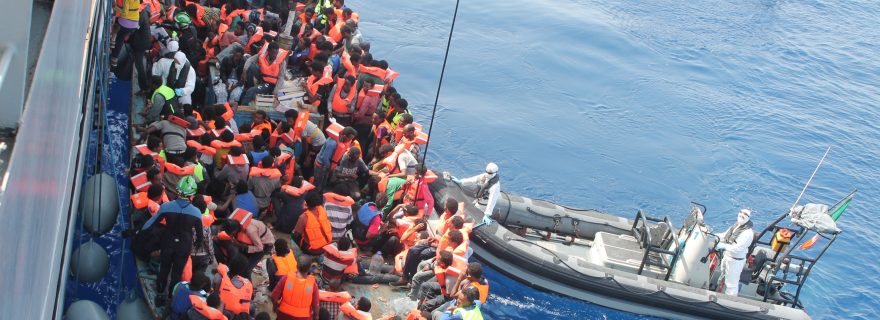Radicalisation over refugees
In 2014 and 2015, the European Union witnessed a steep growth in the numbers of refugees arriving to apply for asylum. Does Europe have to fear radicalisation over refugees?
One of the topics discussed among 80 terrorism experts in Stockholm last week was whether or not Europe has to fear radicalisation over refugees. In 2014 and 2015, the European Union witnessed a steep growth in the numbers of refugees arriving to apply for asylum. This has led to increasingly tense situations with several countries temporarily stopping them from entering their territories. One of the key issues that repeatedly surfaced in the public debate about the migrant crisis is whether or not Europe has to fear radicalisation over refugees.
This question could be interpreted in two different ways. First of all, it could refer to radicalisation of the refugees, in particular relating to possible infiltration and recruitment by jihadist groups such as Islamic State (IS). Secondly, it could also refer to a radicalisation of the debate and behaviour towards refugees, including, but not limited to the rise of right-wing extremist movements.
Radicalisation of refugees
One of the main worries is that jihadist groups such as IS might use the current crisis to send fighters among the refugees entering Europe. Experts noted that this is a possibility, but not a very likely one. However, recently the news emerged that Ben Nasr Mehdi, formerly sentenced in Italy for planning terrorist attacks had tried to re-enter the country on a migrant boat but was arrested and repatriated to his home country Tunisia. This reinforces fears about such a scenario although most European intelligence agencies have stressed that there have been no signs so far of IS members joining the stream of refugees. The Dutch National Coordinator for Security and Counterterrorism noted in its latest public threat assessment that “it is conceivable that jihadists (…) may succeed in mixing in with ordinary migrants” but it also added that “it is unlikely that these channels are being used by jihadists with great regularity.”
Most experts warned that radicalisation of refugees might be more of a future problem. They are concerned about the limits of integration into European societies, given the high number of immigrants. Some explicitly mentioned failed integration as a breeding ground for radicalisation and a recruitment potential for jihadist groups. This might be exacerbated by a lack of resources within EU member states to assist integration, due to a lack of employment, schooling, and language education. Whereas some experts commented upon tensions that might arise from the presence of different ethnic and religious backgrounds within the EU, others warned that speaking in terms of different cultures might lead to increased polarization, which is a real and present danger in itself.
Radicalisation of the debate
Polarization is closely linked to the second way of interpreting the questions: radicalisation surrounding the issue of refugees in Europe. Many pointed to the fact that there have been several attacks against refugees. In Sweden, for instance, three refugee centres were set on fire within one week. A German politician running for the position of mayor in the city of Cologne was stabbed by someone who retaliated against her efforts to find accommodation for migrants arriving in the city. Another expert noted that 70% of those involved in anti-immigrant attacks in Germany were not known to be part of any right-wing extremist movements. Many experts concluded that polarisation within European societies and right-wing extremist violence is on the rise.
Others, however, also criticised a paralysing climate of political correctness: voicing concerns about the arrival of such high numbers of immigrants is often rewarded with receiving the label ‘fascist’ or ‘right-wing extremist’. This is not beneficial for having an open debate about the issues facing the European Union. Some also warned for a possible rise of left-wing extremist movements as a result of the rise of right-wing extremists, potentially activating a spiral of so-called “confrontational violence”.
What does this tell us about the issue of radicalisation over refugees? Unfortunately, consensus was reached that it is a multi-faceted problem that will be very hard to address. It will probably prove itself to be an issue that the EU will be confronted with for the coming years, if not decades. Cultivating open debates such as the one held in Stockholm might be one of the small steps we could take to start addressing the issue.


